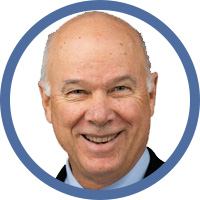1 December 2022
By Steve Vernon - President: Rest-of-Life Communications

Speaking at a Glacier webinar earlier in 2022, Steve Vernon, President: Rest-of-Life Communications, examined what it takes to retire with confidence in a world of uncertainty.
He reminded delegates that most retirees in developed markets around the world don’t have enough money saved to retire at 65 and maintain their current level of spending. This means they need to make tough choices around reducing their spending or generating additional income in retirement. Advisers who can coach them through these decisions can add real value.
Planning for a longer life
Essentially, people are living longer, resulting in retirees needing to lengthen their planning horizon to cover the rest of their lives – they need a plan for at least 20 to 30 years. The arc of life in the 20th century typically had three phases – childhood/early adulthood, followed by middle age/career/family, and finally full retirement. As lifespans increased, people kept adding years into the retirement bucket. But if we consider these phases from a 21st century perspective, we need to add a second middle-age phase that covers the ages from mid-50s to -70s where people still have freedom and independence. They’re active and can continue to work for an income if they choose to do so, which gives them a chance to consciously plan their next, or full, retirement stage.
A big planning challenge
Uncertainty represents the biggest challenge when it comes to retirement planning. This includes questions surrounding how long people will live, how healthy they’ll be, and what inflation rates and the investment markets will do. Retirees need to adopt a flexible approach and be prepared to adjust their plans as circumstances change.
The most important financial decisions facing retirees
The top five decisions retirees will need to make include:
- When and how to retire: will you continue working part-time, or retire fully?
- How to build a retirement income portfolio with guaranteed income, and ensure your savings last.
- Which living expenses to reduce.
- Whether to downsize and convert your home value into investable wealth.
- Protecting against frailty and diminished capacity later in life.
Steve refers to the ages between 60 and 70 as the ‘retirement opportunity zone’. The decisions retirees make during this phase can significantly impact their financial security for the rest of their lives. Retirees can almost double their retirement income by working an extra 10 years, throughout their 60s. Even working part-time during these years, as a down-shifting strategy, will make a significant difference in helping them meet their retirement savings goals.
Personalising the retirement strategy
The 20th century career trajectory sees people stop working at a certain age by law. However very often, they’re not ready to stop working. In addition to providing an income, working addresses three basic human needs: it gives people an identity, a community, and a sense of purpose. Scaling down work over a period of time will ensure that people don’t lose this.
Ways to continue earning an income include extending your contract at your current job if possible, pursuing a bridge job, launching an encore career using existing skills but going in a different direction, taking on project work, or even starting a business.
Building your life portfolio
Your life portfolio includes:
- Health: your state of mind, exercise, nutrition, and healthcare. Good health is a predictor of happiness in retirement, and a lack of good health leads to increased medical costs
- Working or volunteering in some way
- Family and friends
- The community in which you live
Ideally, people should start thinking about making decisions in these areas in their late 50s or early 60s. While most people know this, they just don’t get around to doing anything about it. Helping your clients think long term and wrap their minds around how their lives can and will change, is another way an adviser can add value.
Define your retirement
In the 21st century, people really need to define their own retirement. It’s no longer the ‘permanent holiday’ it once was. Retirees need to determine for themselves what physical and emotional health, financial security, and mental sharpness means for them; how they plan to engage with life; and what their goals are going forward.
10 Tips to encourage behaviour change in clients
- Help them connect emotionally with the impact of their decisions
- Influence with stories
- Emphasise peace of mind and control
- Ask thought-provoking questions
- Break the process into small, manageable steps
- Carefully balance positive and risk-avoidance messages
- Strategically use loss aversion and framing examples
- Use affirmations to link with life goals and self-image
- Consider timing and life-stage factors
- Provide lots of encouragement and congratulations
In the 21st century, we need a much more robust definition of retirement: to live well as long as you can.


